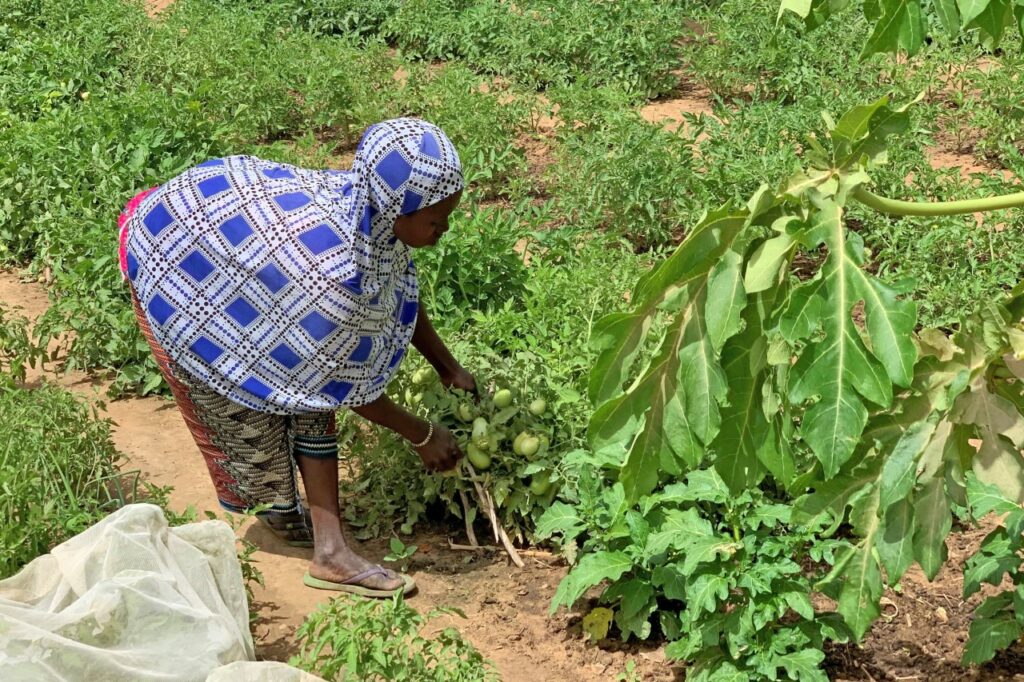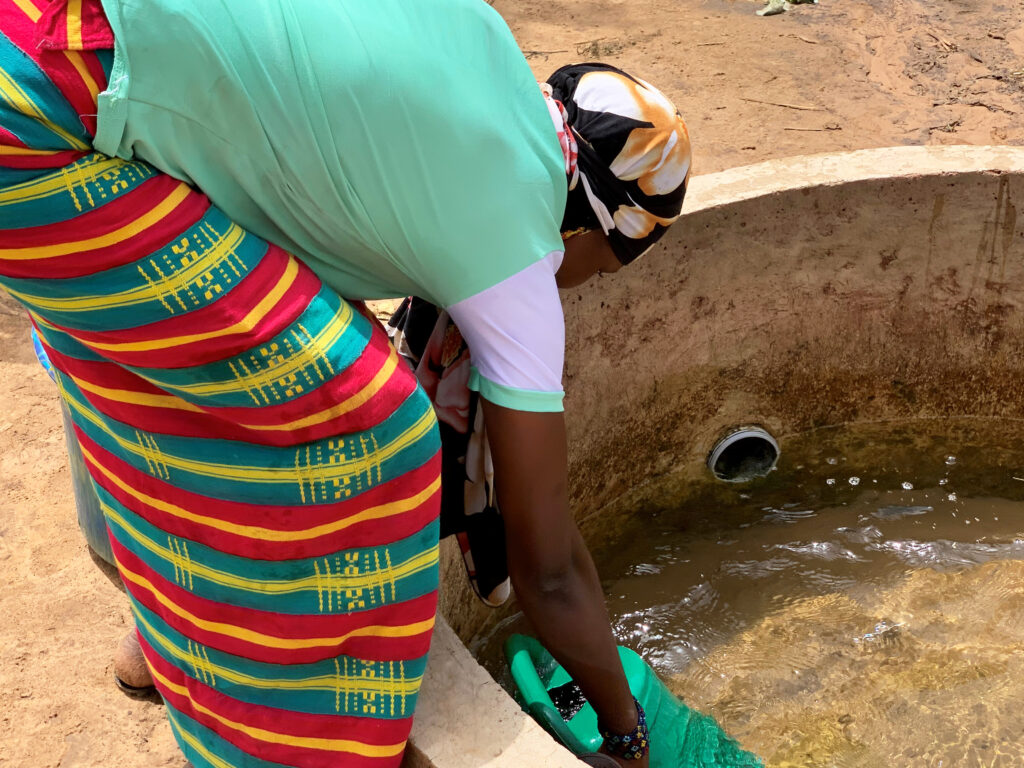A rise in armed conflict, deteriorating security, widespread poverty and warmer temperatures are threatening the lives of millions of people across the Central Sahel. In Mali, more than 80% of the rural population faces food insecurity due to their dependence on subsistence farming and livestock herding.
Fatoumata’s village in central Mali has faced food crises many times. Most of the children in the community experience malnutrition as the financial difficulties faced by their families make it impossible for them to meet their children’s basic needs.
To address some of these issues and ensure children have access to a balanced and healthy diet, Plan International started a nutrition project to help women in the village start their own communal vegetable garden. The women received training, technical support and seeds to grow a wide variety of fruit and vegetables, including pawpaw, okra, moringa, and bananas.

Fatoumata is full of praise for the initiative. “This garden has really been beneficial for us. We produce what we consume as a family and sell some of it. Since we started the garden, our children eat well and are healthy.”
22-year-old Aissata produces lettuce, tomatoes, aubergines, peppers, carrots, beetroot and potatoes. She tells us she is happy there are no more cases of malnutrition in the village thanks to the training the mothers received. “In case of breastfeeding problems, we prepare mashed potatoes for the baby,” she explains.
“In the past, we couldn’t even give our children 50 CFA francs for a snack, but now we do. We couldn’t take care of our children properly, but now it’s possible with the money we earn from sales,” Aissata says with a smile.
The maintenance of the vegetable garden depends exclusively on the women. They have set up a gardening group, with a savings system which each woman contributes to. “We take care of the garden area with our cash box. Every month, each woman gives 250 FCFA which is put into the cash box,” says Aissata.

The village chief explains that the village water supply system broke down recently and the women used their saved resources to cover the repair costs. However, the conflict in the area poses a serious threat to the women’s economic security. They can no longer go to the weekly fairs to sell their goods because while some villages are deserted, access to others is too risky.
The women’s gardening group have built up their reputation in the area. In fact, they are known to sell the best products, especially off-season. They have ambitions to expand the garden but need additional support. “We don’t have enough clean water, we need another water supply system, a storage tank. To preserve our produce properly, we also need a storage warehouse, watering cans and rakes,” explains Fatoumata.
Besides that, Fatoumata, a mother of three children, has another dream. “I want to go to school. We also want a learning space for the women themselves. This will enable us to do our own accounts and make more money.”
The nutrition project is not only contributed to reducing food insecurity in the community, but has also strengthened social cohesion within the village, as Fatoumata testifies: “We have created several associations in the village through the project and this has united the community because all the women are here and even some men too.”